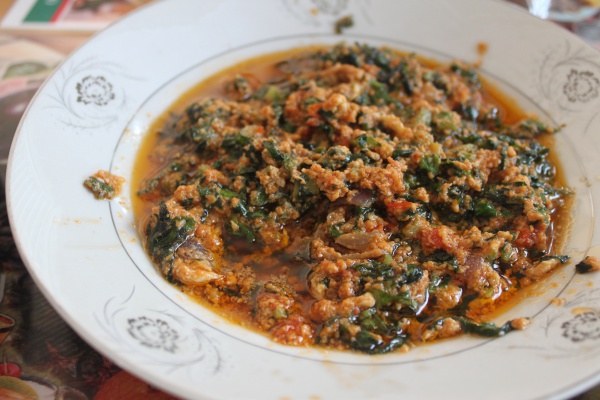Facts About Palaver sauce
Palaver sauce, also known as palava sauce or plasas, is a cherished stew in West Africa, particularly in countries like Ghana, Liberia, Sierra Leone, and Nigeria. The name "palaver" originates from Portuguese and means a discussion, lengthy debate, or quarrel. While the exact reason for the stew's name is unclear, some speculate it might be due to the lengthy, rope-like greens that could humorously be imagined as causing disputes or the lively spices that might evoke the intensity of a heated debate. Interestingly, palaver sauce is reputed to have the power to either calm tensions or stir them up. It's also known by other names such as Kontonmire, Kentumere, Nkontommire, and Pla'sas.
This stew varies by region, but common ingredients include beef, fish, shrimp, pepitas, cassava, taro leaves, and palm oil. It is typically enjoyed with boiled rice, potatoes, garri, fufu, or yams. Outside of Africa, spinach is often used as a substitute for the traditional greens. In Liberia, the leaves used for this stew are referred to as Molokhia or Mulukhiyah leaves.
To prepare palaver sauce, you start by frying meat in palm oil along with onion, pepper, and chili. Next, you add dried or smoked fish and sliced vegetables such as spinach, bean leaves, cabbage, kale, and okra. Pour in some water and season with spices, then let it all simmer on low heat until everything is well-cooked and the water has reduced. Palaver sauce is usually served with white rice, making for a hearty and flavorful meal.

 Burkina Faso
Burkina Faso